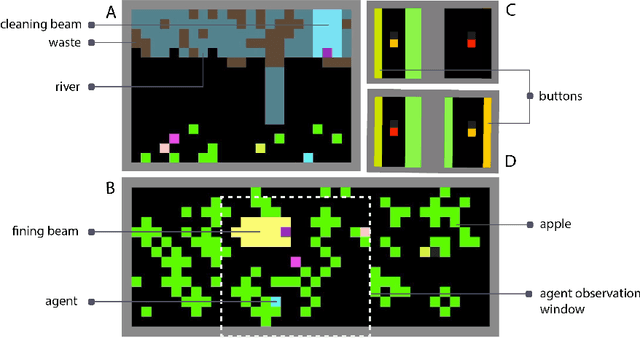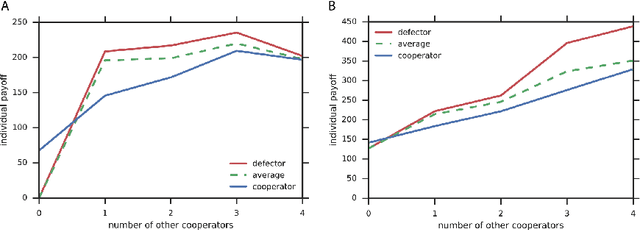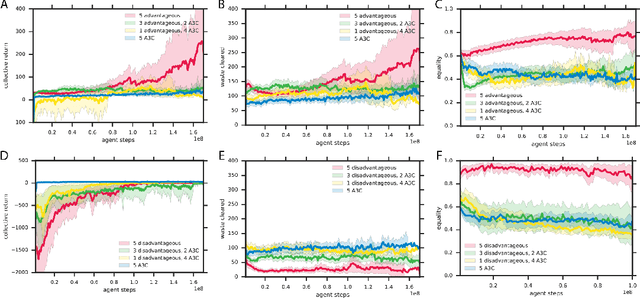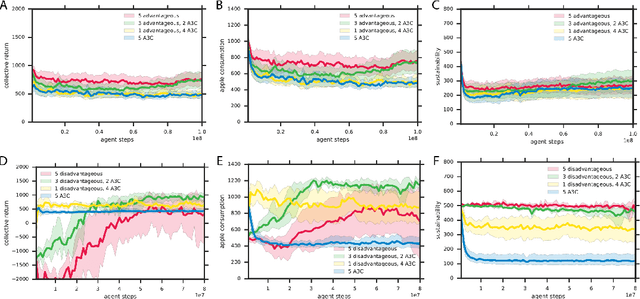Heather Roff
Inequity aversion improves cooperation in intertemporal social dilemmas
Sep 27, 2018



Abstract:Groups of humans are often able to find ways to cooperate with one another in complex, temporally extended social dilemmas. Models based on behavioral economics are only able to explain this phenomenon for unrealistic stateless matrix games. Recently, multi-agent reinforcement learning has been applied to generalize social dilemma problems to temporally and spatially extended Markov games. However, this has not yet generated an agent that learns to cooperate in social dilemmas as humans do. A key insight is that many, but not all, human individuals have inequity averse social preferences. This promotes a particular resolution of the matrix game social dilemma wherein inequity-averse individuals are personally pro-social and punish defectors. Here we extend this idea to Markov games and show that it promotes cooperation in several types of sequential social dilemma, via a profitable interaction with policy learnability. In particular, we find that inequity aversion improves temporal credit assignment for the important class of intertemporal social dilemmas. These results help explain how large-scale cooperation may emerge and persist.
The Malicious Use of Artificial Intelligence: Forecasting, Prevention, and Mitigation
Feb 20, 2018
Abstract:This report surveys the landscape of potential security threats from malicious uses of AI, and proposes ways to better forecast, prevent, and mitigate these threats. After analyzing the ways in which AI may influence the threat landscape in the digital, physical, and political domains, we make four high-level recommendations for AI researchers and other stakeholders. We also suggest several promising areas for further research that could expand the portfolio of defenses, or make attacks less effective or harder to execute. Finally, we discuss, but do not conclusively resolve, the long-term equilibrium of attackers and defenders.
 Add to Chrome
Add to Chrome Add to Firefox
Add to Firefox Add to Edge
Add to Edge